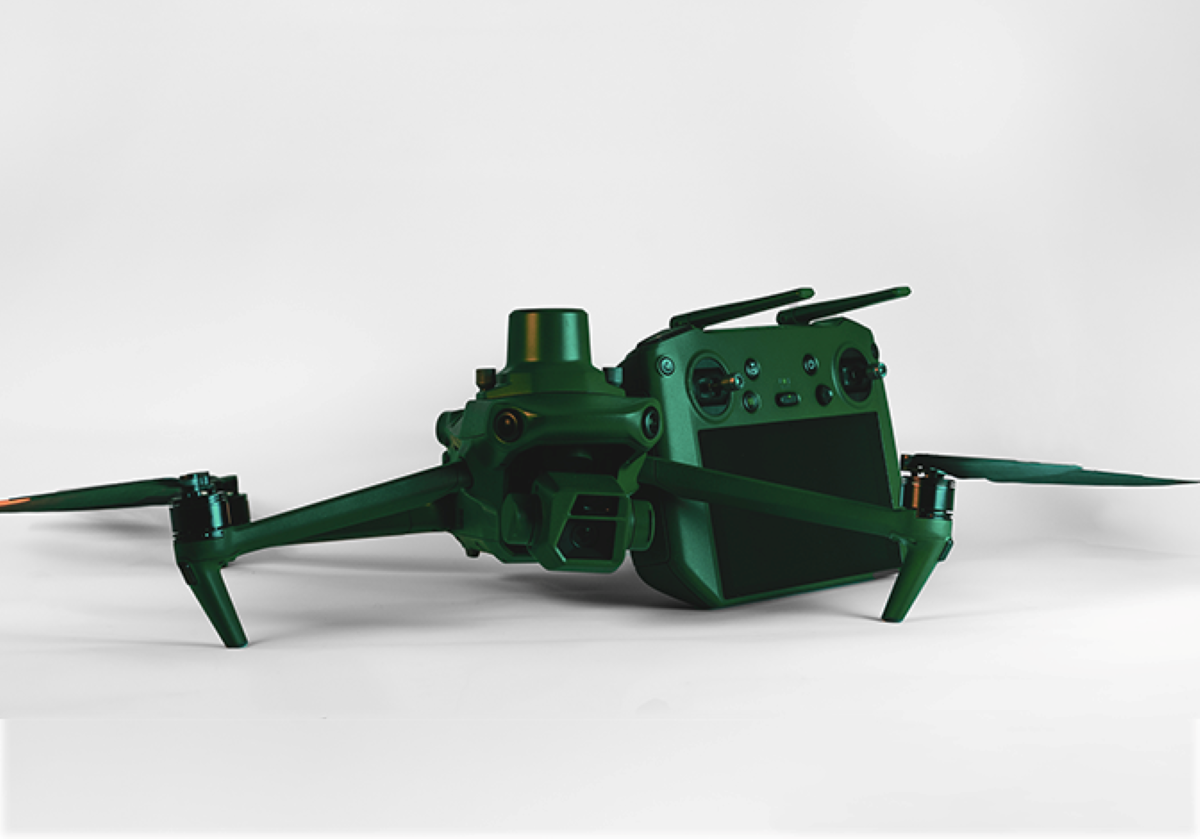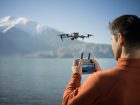
Texas-based drone firm Anzu Robotics is facing scrutiny from US lawmakers over its relationship with DJI. The House Select Committee on the Strategic Competition Between the United States and the Chinese Communist Party has raised concerns that Anzu might be serving as a “passthrough” for DJI to circumvent US sanctions.
Chairman John Moolenaar (R-MI) and Ranking Member Raja Krishnamoorthi (D-IL) of the House Select Committee on the Strategic Competition Between the United States and the Chinese Communist Party have written to Randall Warnas, CEO of Anzu Robotics, demanding answers about his company’s relationship with DJI.
Moolenaar and Krishnamoorthi write, “[S]ecurity researchers have confirmed that Anzu’s Raptor T is essentially a DJI Mavic 3 painted green, with its remote control and application all running on DJI technology… Based in part on your own statements, it appears that DJI is using Anzu as a passthrough company in an attempt to avoid current and anticipated US restrictions on DJI products. Even more disturbingly, we found that Anzu’s CEO admitted in a recent interview that the primary purpose of the DJI-Anzu relationship was to circumvent growing US legislative restrictions on DJI products.”
It’s worth noting that Anzu Robotics has been open about its use of DJI technology. As DroneDJ has detailed before, Anzu has clearly stated that its drones are based on the DJI Mavic 3 Enterprise platform. However, the company ensures that its Raptor series drones are manufactured in Malaysia, not China, distancing itself from concerns over Chinese influence.
Anzu basically operates under a standard licensing agreement with DJI, which allows it to modify and produce drones using DJI’s technology. This is a common business practice, similar to licensing arrangements seen in various industries. Moreover, Anzu is fully divested from its Chinese origins, with its software developed by an American company, Aloft Technologies, and data stored on US servers.
However, lawmakers remain skeptical, particularly given the opaque nature of the agreement between DJI, Anzu, and the Malaysian manufacturer responsible for producing the drones.
New: DJI responds to US lawmakers’ concerns over ties with Anzu Robotics
The lawmakers assert in their letter that the nature of the DJI-Anzu relationship appears to defy common business conventions. “For instance, Anzu claims that DJI is providing its industry-leading drone technology to it through a license that gives Anzu Robotics the rights to modify and manufacture this technology at will,” the lawmakers write.
“There are no royalties shared with the licensing organization, no joint or shared ownership of Anzu Robotics, and no reporting on customer data. On top of that, according to presentations that Anzu provided, DJI is also providing ‘priority technical support’ for all Anzu drones. Given these facts, it is hard to understand the business rationale for DJI to enter into this relationship aside from using it as a passthrough to circumvent legal restrictions (current and prospective) placed on its products.”
Now, DJI has long held a commanding presence in the global drone market. As of 2020, the company controlled an estimated 77% of the US commercial drone market and provided approximately 90% of the drones used by US public safety agencies, including law enforcement and firefighting departments. This dominance has not come without scrutiny, particularly given the company’s alleged ties to the Chinese government and its potential to gather sensitive data that could be transmitted back to Beijing.
In 2022, the Pentagon classified DJI as a Chinese military company, a designation that prohibits the US military from procuring its products. The concern is not just about the drones themselves but also the software and data infrastructure that supports them. Lawmakers fear that these systems could be used for espionage or other activities detrimental to US national security.
As such, the investigation into Anzu Robotics appears to be a part of a larger effort by US lawmakers to mitigate national security risks posed by Chinese technology companies, particularly those with alleged ties to the Chinese Communist Party (CCP).
Over the past year, Congress has enacted several measures to limit DJI’s influence, including the Countering CCP Drones Act, which would ban DJI technology from US communication networks. The proposed 2025 National Defense Authorization Act (NDAA) also includes provisions that would ban the Federal Communications Commission (FCC) from issuing licenses to DJI, potentially ending the sale of all new DJI models in the United States.
This legislative push is part of a broader effort to reduce US reliance on Chinese technology and prevent potential security risks associated with it. Several states, including Florida, Mississippi, and Tennessee, have already taken steps to prohibit the sale of DJI drones to local law enforcement agencies, citing similar concerns.
However, these measures have raised serious questions about the future of the US drone market. DJI’s products are not only popular but also affordable, making them the go-to choice for many public safety agencies and enterprises. In the end, the situation underscores the importance of developing and supporting domestic alternatives to Chinese technology. Ensuring that American companies can lead in innovation and manufacturing is crucial to reducing reliance on potentially compromised foreign products.
At the same time, the debate over DJI and Anzu Robotics serves as a reminder of the complexities involved in enforcing national security measures in a globalized economy. As the drone market and technology landscape continue to evolve, so too will the strategies employed by companies and governments alike to navigate these challenges.
Read more: Dodging rules? FAA hits reckless drone pilots with $341K in fines
FTC: We use income earning auto affiliate links. More.






Comments